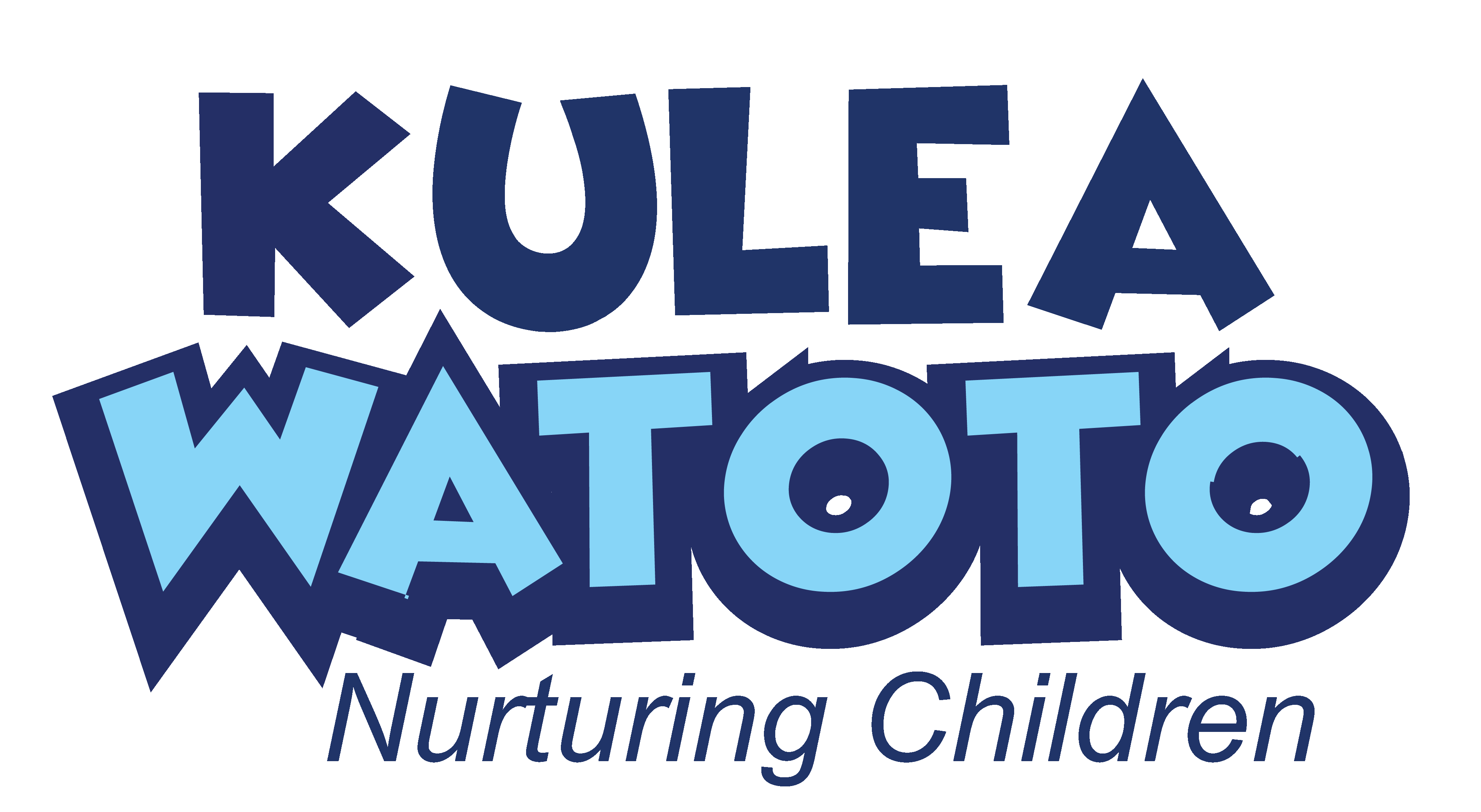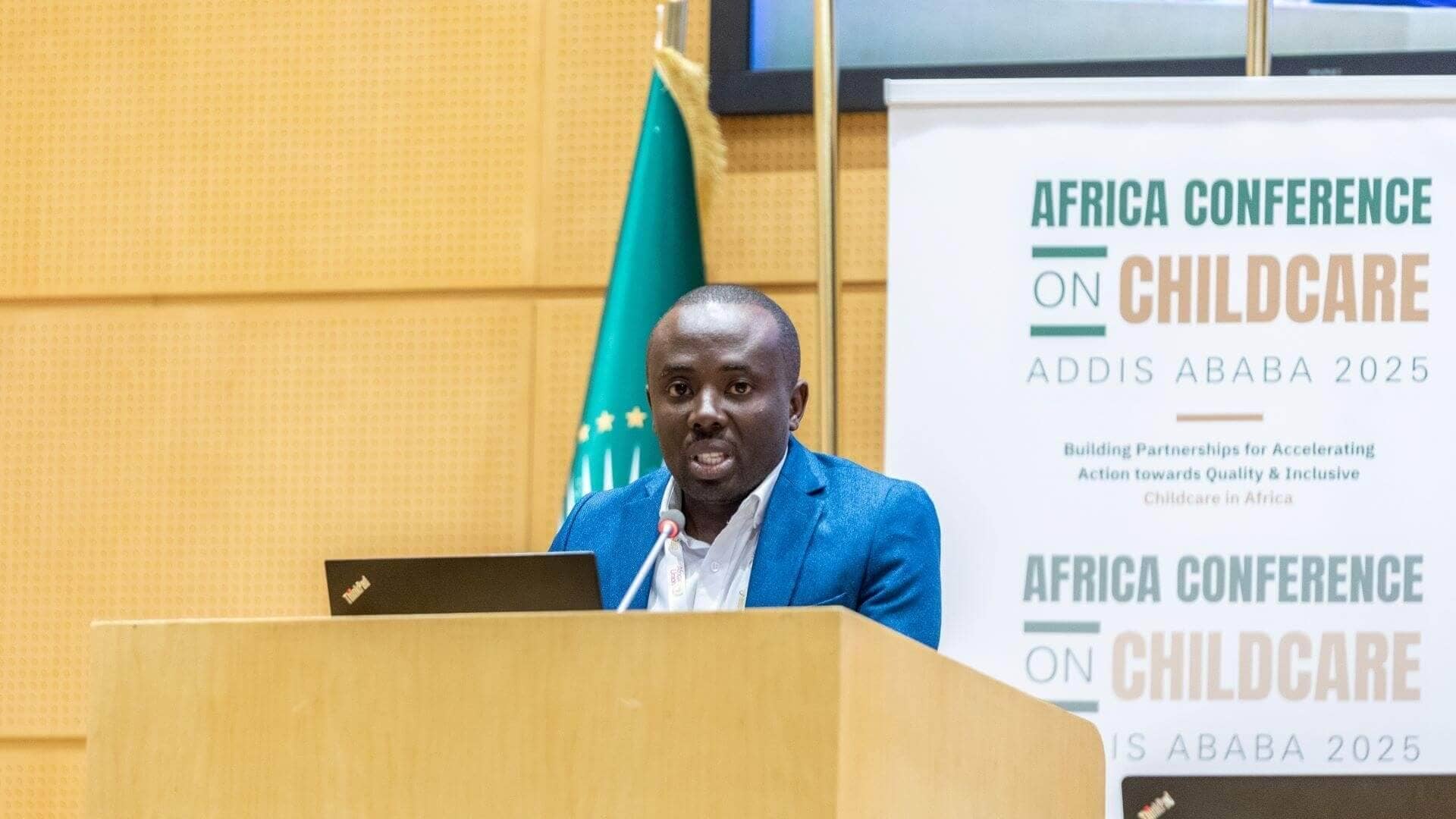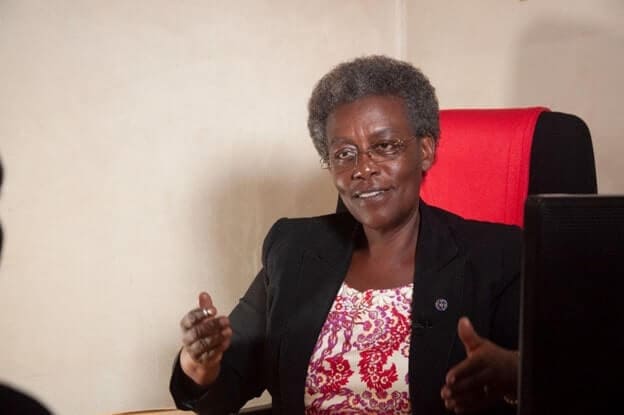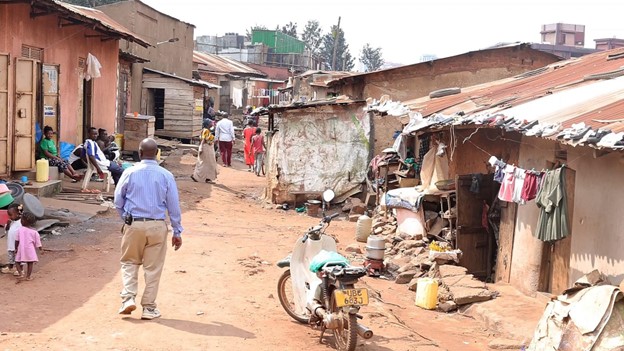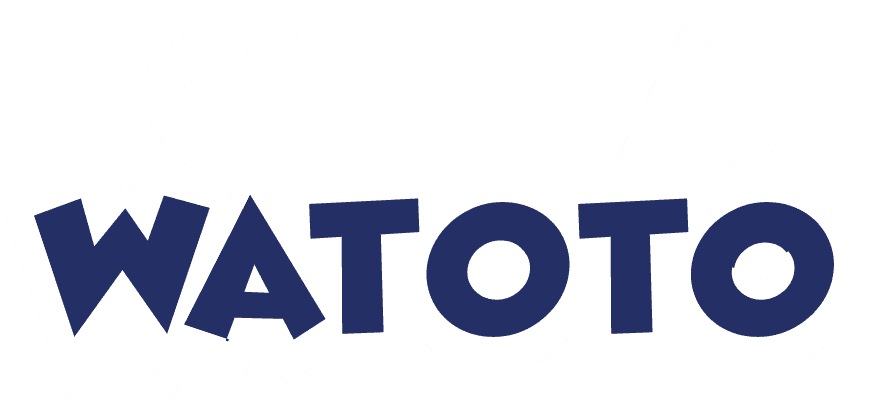Against All Odds: Lawrence’s Transformation Through the Kulea Watoto Project
Against All Odds: Lawrence’s Transformation Through the Kulea Watoto Project
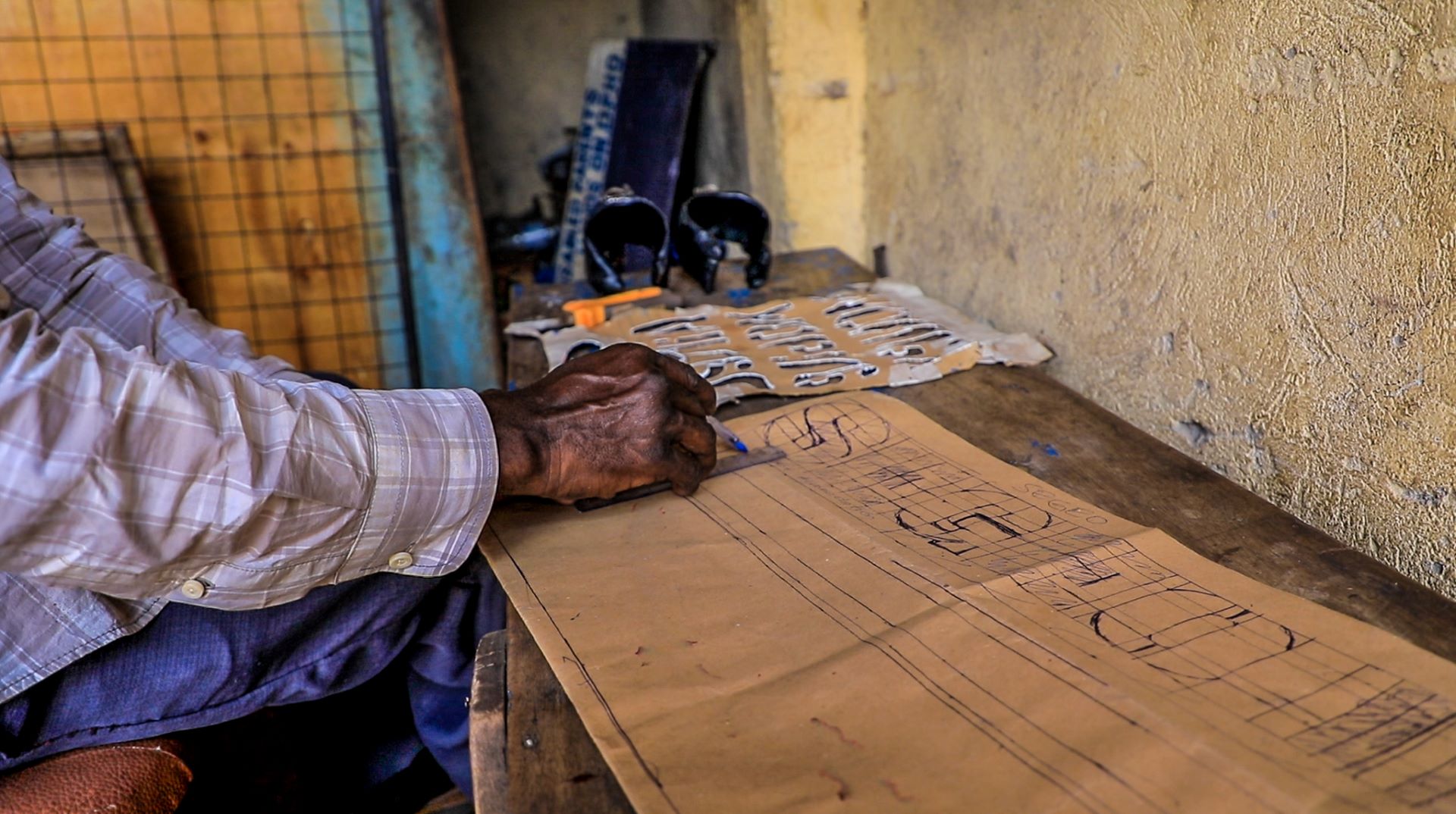
Lawrence Renco Kasirye crafts out letter as he prepares to make signages. Lawrence is grateful to the Kulea Watoto Project for supporting him with financial literacy trainings and a cash grant that enabled him to re-establish his business and support his family
In a modest workshop in Lugala, a suburb of Kampala, Lawrence Renco Kasirye meticulously shapes letters from paper as he prepares to craft a signage. His disability is not immediately apparent.
At 52 years old, Lawrence, a father of six, runs a signage business. He was born with irreversible paralysis, which has required him to use walking crutches throughout his life.
He reflects on the significant challenges he faced during his upbringing, as his condition often led to discrimination and employers overlooking him for job opportunities. This struggle made it difficult for him to support himself and his family.
"I always felt like a burden to my family. I often questioned why this happened to me,” he shares. “I was frequently rejected for jobs because, despite my gifted capabilities, many employers doubted my efficiency compared to others. Life was incredibly tough.”
According to the National Population and Housing Census of 2024, Uganda has a disability prevalence rate of 12.4% among individuals aged five and older, with 4.5% experiencing difficulties in walking (UBOS, 2024).
Motivated by the lack of employment options, Lawrence chose to pursue self-employment, driven by his passion for art and design. He discovered that he had a natural talent for drawing and painting, which presented a transformative opportunity to monetize his skills.
“I began creating signages for local shops in my neighborhood, particularly for Mobile Money outlets. My talent for color and words attracted many customers, and I was able to earn a decent income,” he explains.
With his earnings, Lawrence decided to expand his business by renting a shop to better serve his clients and have adequate space for his work. However, he encountered further obstacles.
“Landlords were hesitant to rent to me,” he recalls. “They focused on my disability and doubted my ability to make timely payments. As a result, I faced numerous rejections and struggled to find a suitable location.”
Consequently, Lawrence decided to work from home, which limited his customer base to those nearby. As a result, his business began to decline, and he soon found himself with no market left. Additionally, he was spending his earnings carelessly, leading him back to his original financial struggles. He fell behind on rent, was late with his children's school fees, and struggled to afford basic necessities.
But just when it seemed that everything was falling apart for Lawrence, fortune smiled upon him.
Through recommendation of community leaders, he was enrolled into the Kulea Watoto Project at the end of 2023. As a father and primary caregiver to his two-year-old son, Lawrence was an ideal candidate for the program. He undertook training sessions focused on mindset change, financial literacy, and selection planning and management. He discovered the advantages of working hand-in-hand with his wife, Jennifer, to improve their family's situation and secure essential needs for their young son. Together, they created a vision map, which they still display in their living room as a constant reminder of their status and future aspirations over the next five years.
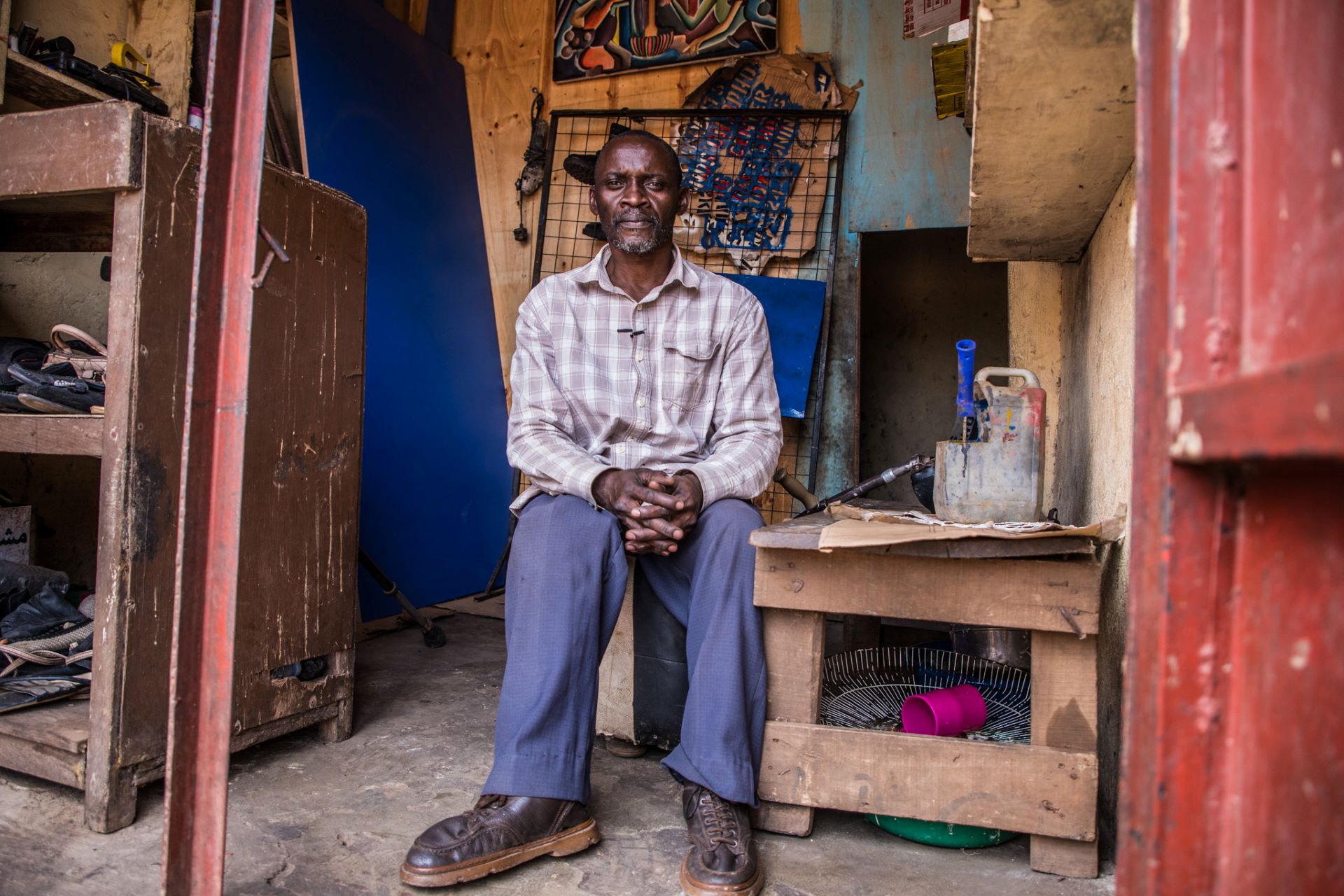
Lawrence sits in his signage workshop. Because of his disability, financial institutions hesitated to offer him financial support until the cash grant he acquired from Kulea Watoto which has supported him rent a shop and expand his business
This engagement with Kulea Watoto has proved to be transformative for Lawrence.
“The training with Kulea Watoto was enlightening. The mindset change session helped me come to terms with my disability, and further show I was indeed able in a unique way. I realized that this is who I am, and I must leverage my abilities to achieve what anyone else can,” he shares. “The financial literacy training taught me the importance of being prudent with my income and prioritizing essential expenditures. This has significantly improved my life, and I no longer worry about my finances.”
After completing the training, Lawrence received a cash grant of UGX 810,000 ($220). This, he says, was the first time he had received such a substantial amount of money in his life.
“Banks and other financial institutions were reluctant to provide me with loans due to my disability. They assumed that my condition would prevent me from repaying any borrowed funds, which was incredibly frustrating,” Lawrence explained.
With the financial grant, Lawrence recapitalized his business, purchasing additional materials and renting a shop in the city center to establish his workshop. His circumstances have significantly improved.
"The financial grant has provided a tremendous boost to my business. It revitalized my operations and attracted new clients, especially now that I am stationed in an urban area. My earnings have increased compared to what I previously made, and I am using this income to support my family, particularly my young son," he explains. "He enjoys nutritious meals, has access to play materials, and I am able to spend more quality time with him, as emphasized in our training sessions."
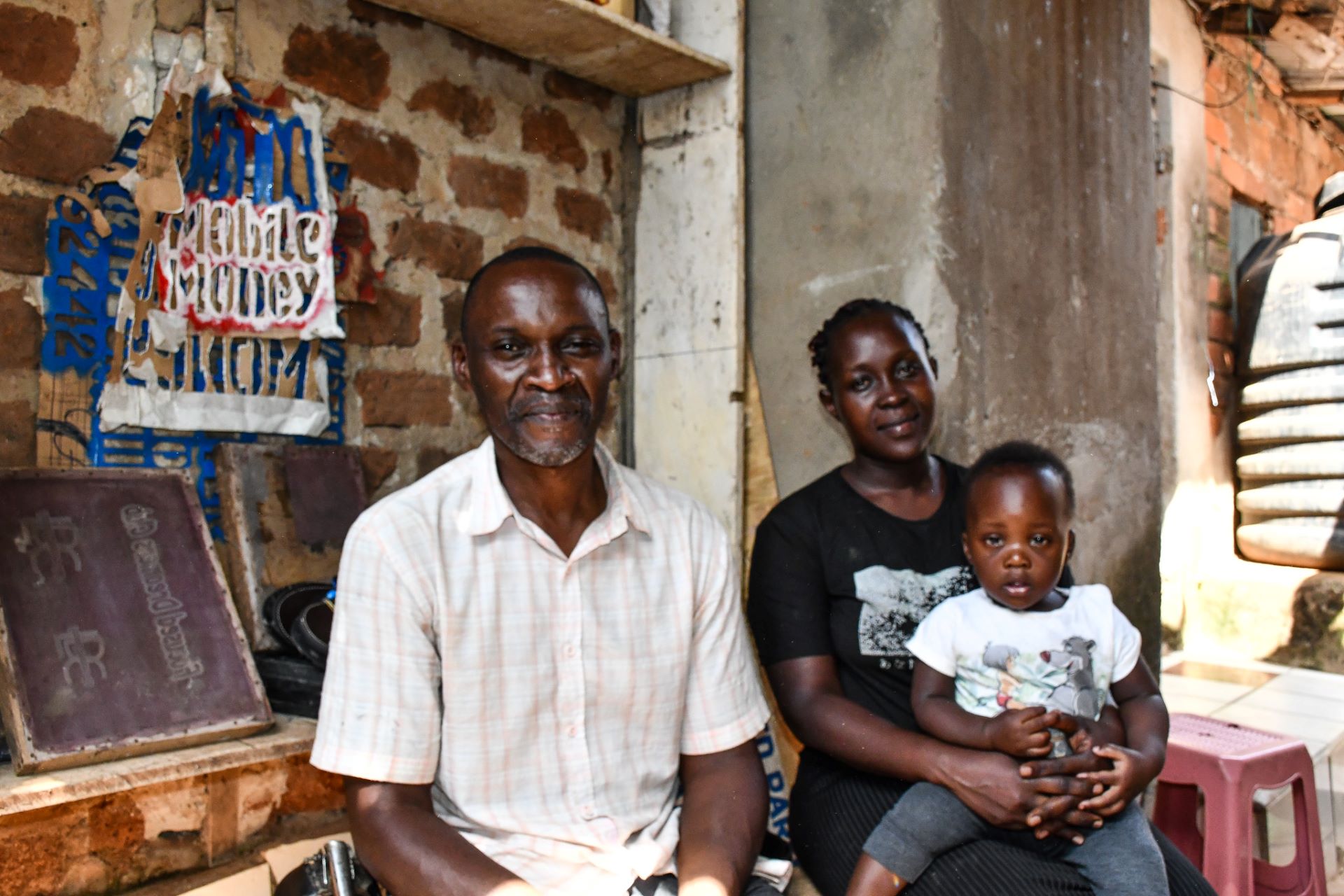
Happy family! Lawrence with his wife Jennifer and son at their home in Lugala. Jennifer is grateful to the Kulea Watoto Project for the support which also enabled her start up a french-fries roadside business that is supplementing their family income
To enhance his family's prospects for a better future, Lawrence allocated part of the grant to help his wife, Jeniffer, start a roadside French fries’ business right outside his shop. Each evening, she sells fries to commuters heading home from work.
“Kulea Watoto has significantly benefited our family. I am now actively engaged in enhancing our financial situation, and I am truly thankful for the assistance we have received. My husband and I have successfully generated income from our business, allowing us to meet our essential needs and save for our son's pre-primary education next year, Jeniffer shares.
Reflecting on his experience, Lawrence highlights the crucial role that the support from the Kulea Watoto Project has played in his life.
"Without this assistance, I would likely still be at home, struggling to make ends meet and provide for my family. Instead, I find myself as a role model, demonstrating that with the right resources and support, even individuals with disabilities can thrive in business and compete effectively in the market. I am grateful to Kulea Watoto for this invaluable support," he states.
Lawrence's journey serves as a powerful demonstration of resilience and the transformative power of dedicated support, illustrating that with the right resources, individuals can overcome adversity and build a prosperous future for themselves and their families.
Lawrence Renco Kasirye is among the 425 household clients enrolled in Cohort One in Kampala, benefiting from the Kulea Watoto Project's training and cash grants. The project provides business skills and financial literacy training to selected households with progressive business ideas supported with start-up funding and complemented with appropriate linkages to key enabling inputs to their businesses – such as capital. The project employs the two-generation approach that emphasizes providing comprehensive support and services that address the needs of both parents and children simultaneously, premised on the understanding that the well-being of children and their parents is intertwined - outcomes for children are closely related to the well-being of their families and caregivers.
